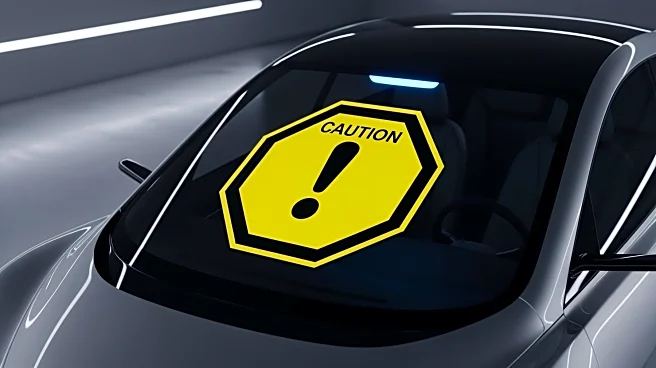What's Happening?
Tesla's self-driving technology is under scrutiny following a recent court case in the United States where the company was found partially liable for a fatal crash. The incident involved a Tesla Model S operating on autopilot, which failed to detect a stop
sign, resulting in a collision that critically injured Dillon Angulo and killed his girlfriend, Naibel Benavides Leon. Critics, including Dr. Missy Cummings, a director at George Mason University, argue that Tesla's reliance on cameras alone, without additional sensors like LiDAR and radar, compromises safety. The case has raised concerns about the safety and marketing of Tesla's self-driving features, with some experts suggesting that the technology is not yet ready for widespread use.
Why It's Important?
The scrutiny of Tesla's self-driving technology highlights significant safety and regulatory challenges in the autonomous vehicle industry. The case underscores the potential risks of over-reliance on self-driving systems and the importance of robust sensor technology to ensure safety. The outcome of the court case may influence public perception and regulatory approaches to autonomous vehicles, potentially impacting Tesla's market position and the broader adoption of self-driving technology. Stakeholders, including consumers, regulators, and competitors, are closely watching how Tesla addresses these safety concerns and adapts its technology and marketing strategies.
What's Next?
As the debate over self-driving technology continues, regulatory bodies may consider implementing stricter guidelines and safety standards for autonomous vehicles. Tesla may need to enhance its sensor technology and improve transparency in its marketing to regain consumer trust. The company could face increased legal scrutiny and potential financial liabilities if further incidents occur. Additionally, the development of a comprehensive regulatory framework for automated vehicles is anticipated, which could shape the future landscape of the autonomous vehicle industry.
Beyond the Headlines
The case raises ethical questions about the responsibility of technology companies in ensuring the safety of their products. It also highlights the potential societal impact of autonomous vehicles, including changes in driving behavior and the legal implications of accidents involving self-driving cars. The ongoing development and deployment of autonomous technology may lead to long-term shifts in transportation, urban planning, and employment in the automotive sector.















